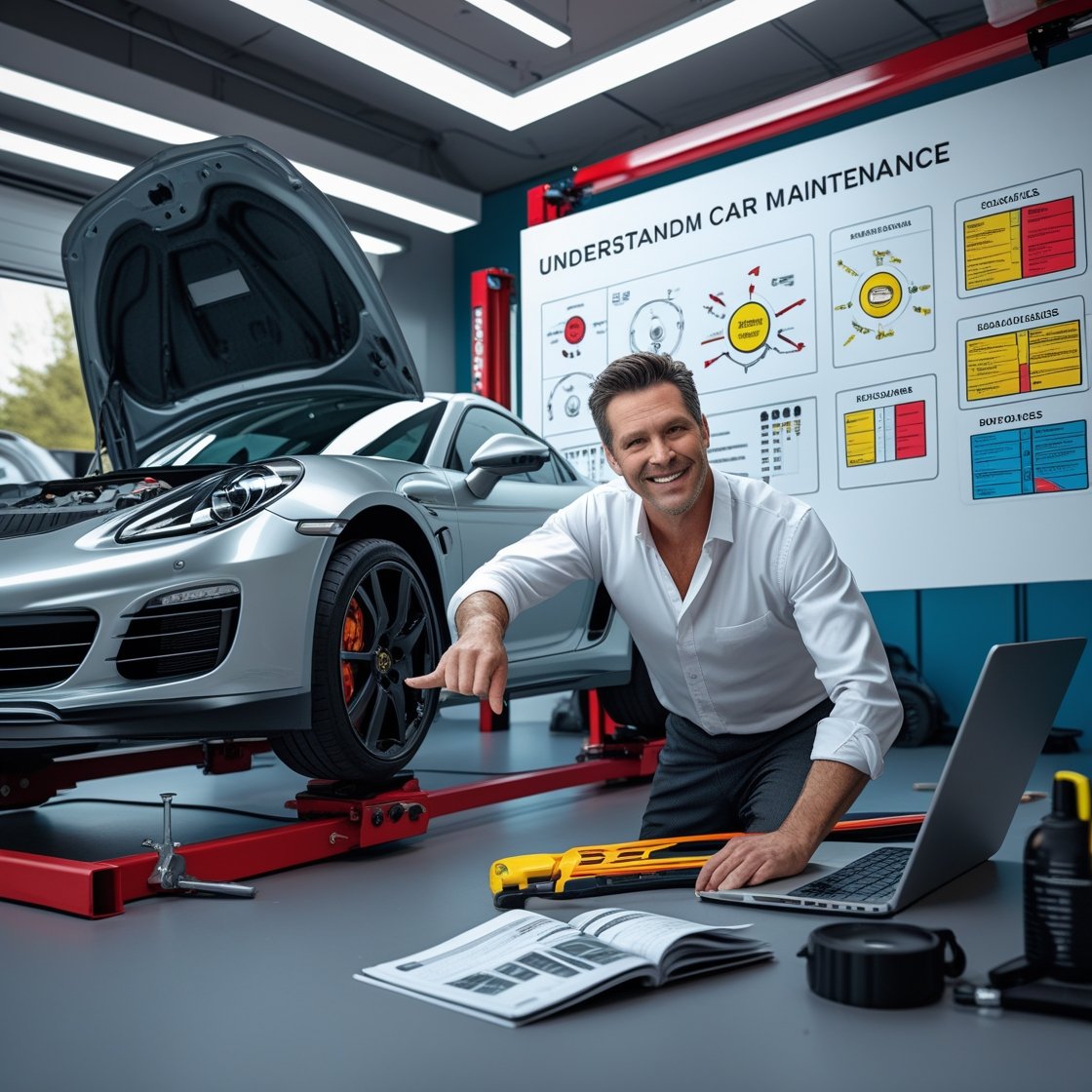
Owning a car is more than just a convenience—it’s a responsibility. Regular automobile maintenance not only keeps your car running smoothly but also ensures your safety and saves you money in the long run. Yet, many car owners—new and experienced alike—often overlook the importance of proper upkeep.
This blog will take you through essential car maintenance tips every vehicle owner should know. Whether you’re trying to extend the life of your car, improve performance, or avoid costly repairs, these actionable insights will keep your car in top condition!
Why Automobile Maintenance is Vital
Before jumping into the tips, it’s important to understand why regular vehicle care matters.
Ensures Safety
A well-maintained car is a safe car. Regular maintenance checks reduce the chances of breakdowns and ensure safety features like brakes and tires function properly.
Saves Money
Fixing small, preventable issues during regular checkups is far less expensive than addressing major breakdowns later. For instance, replacing brake pads costs significantly less than replacing an entire brake system.
Boosts Longevity
Proper maintenance helps extend the life of your car by reducing wear and tear on vital components. This means fewer trips to the mechanic and a better return on investment.
Maintains Resale Value
A car is a depreciating asset, but its value can be preserved with regular care and a clean maintenance record. Buyers often pay a premium for vehicles in tiptop shape.
Now, let’s explore how you can master automobile maintenance with these practical tips.
Essential Car Maintenance Tips for Every Owner
1. Regularly Check and Change the Oil
Oil is the lifeblood of your car’s engine. It keeps components lubricated, reduces heat, and prevents wear.
- Check the oil level: Use the dipstick to monitor oil levels. Make sure it’s between the ‘minimum’ and ‘maximum’ marks.
- Change the oil: Most vehicles require an oil change every 5,000 to 7,500 miles, but check your car’s manual for specifics. Not changing the oil on time can lead to engine damage.
2. Monitor Tire Health
Your car tires are the connection between you and the road, so maintaining them is critical.
- Tire pressure: Check tire pressure monthly using a pressure gauge and ensure it aligns with the manufacturer’s recommendation. Incorrect pressure affects fuel economy and handling.
- Tread depth: Use a tread depth gauge or the “penny test” to check tire wear. Replace tires if the tread is below the safe limit of 2/32 of an inch.
- Rotation and alignment: Rotate tires every 5,000 to 8,000 miles and ensure proper alignment to promote even tire wear.
3. Replace Filters When Needed
Filters in your car—such as the air filter, oil filter, and fuel filter—play a crucial role in keeping the engine clean and running optimally.
- Oil filter: Replace it during every oil change.
- Air filter: Check it every 12,000 to 15,000 miles and replace it if it’s dirty. A clogged air filter reduces engine efficiency and affects fuel economy.
4. Test and Maintain the Battery
No one likes being stranded due to a dead battery. Here’s what you should do:
- Check for corrosion: Clean battery terminals regularly to prevent corrosion.
- Test charge level: Use a multimeter or have the battery professionally tested annually.
- Replace when needed: If your battery is more than three years old, it might be time for a replacement, depending on performance.
5. Inspect and Maintain Brakes
The braking system is one of the most critical safety features in your car.
- Listen for noise: Squealing or grinding sounds are often signs of worn-out brake pads.
- Check responsiveness: Brakes should feel firm, not spongy, when applied. If they’re unresponsive, have them inspected immediately.
- Replace pads and fluid: Brake pads typically need replacement every 20,000 to 50,000 miles. Replacing brake fluid every two to three years helps maintain brake performance.
6. Keep Fluids Topped Off
Fluids play an essential role in ensuring different systems in your car work seamlessly. Regularly check the following fluids and top them off as needed.
- Coolant: Prevents overheating by maintaining engine temperature.
- Transmission fluid: Enables smooth gear shifting. Replace it based on manufacturer recommendations.
- Power steering fluid: Helps you steer effortlessly. A lack of fluid can damage the steering pump.
- Windshield washer fluid: Keeps your windscreen clean and free of debris.
7. Maintain Your Lights
Fully functioning lights are crucial for visibility and safety, especially at night.
- Check regularly: Test headlights, brake lights, and turn signals weekly.
- Replace bulbs promptly: If a bulb is out, replace it immediately to avoid accidents or fines.
8. Keep Your Car Clean
Cleaning your car is about more than just appearances—it prevents long-term damage.
- Exterior cleaning: Wash your car regularly to remove dirt, grime, and salt that can cause rust. Consider using wax for added protection.
- Interior cleaning: Vacuum seats and floors to prevent stains. Don’t forget to clean and condition leather seats to avoid cracking.
9. Stick to the Manufacturer’s Maintenance Schedule
Your car’s manufacturer knows best. Refer to the vehicle manual for recommended maintenance intervals covering oil changes, inspections, part replacements, and more. Following this schedule not only keeps your car in optimal condition but also ensures your warranty remains valid.
10. Stay Alert for Warning Signs
Pay attention to how your car feels and performs. Unusual noises, weird smells, dashboard warning lights, or a change in how your car drives often indicate a problem. Don’t ignore these signs—prompt action can prevent bigger issues.
Taking the Next Step—Trust the Experts
Beyond following these tips, your car may benefit from professional care. Routine inspections at reputable auto service centers catch problems you might overlook. Expert technicians can provide insights into potential issues while ensuring your car remains safe and reliable.
Remember, maintenance isn’t just a task—it’s an investment in your car’s health and longevity.
Drive Smoothly with Proper Car Maintenance
Taking care of your vehicle doesn’t have to be overwhelming. By following these essential maintenance tips, you’ll not only keep your car running smoothly but also enjoy safer journeys and better overall performance.
Whether you’re checking your oil or inspecting your brakes, the little things you do today can save you from headaches down the road. Take control of your car’s care, and enjoy the reliability of well-maintained wheels!
Stay informed, stay safe, and happy driving!
